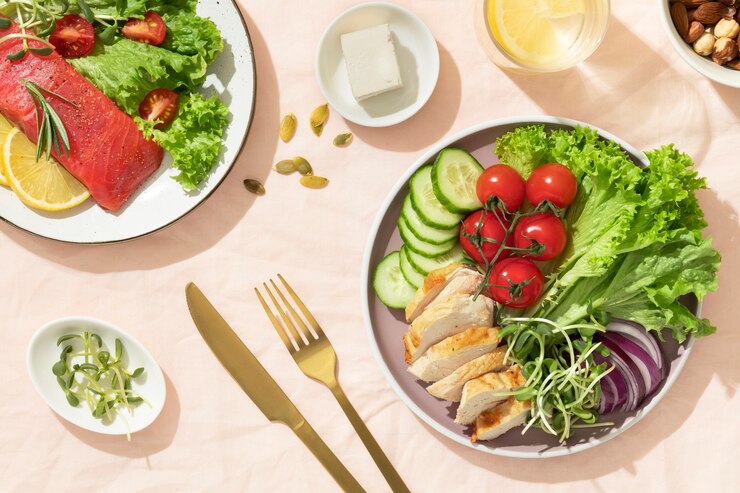 Image from Freepik
Image from Freepik
The golfer’s mantra: Every stroke counts.
Seasoned golfers know that it takes honing your swing and perfecting your technique to perform at your best on the course, but behind it all is nutrition - a crucial fuel to your golf game.
Golf requires precision, focus, and endurance, actions which can be achieved by nourishing your body with the right foods. Proper nutrition significantly enhances your golf performance, provides you with the energy needed to swing the club and walk the course, and helps improve concentration and recovery.
By making smart dietary choices, you can fuel your golf game and take it to the next level. Here, we will explore the top 10 foods for optimum golf performance, and guide you on simple recipes and meal prep tips for golfers on the go.
Quick, grab your clubs and get ready!
The Importance of Nutrition for Peak Golf Performance
Nutrition is often overlooked when it comes to golf performance, but can make all the difference to your game. Just like a car needs fuel to run, your body needs the right nutrients to function at its best - more so during sports.
Consuming a balanced diet that includes carbohydrates, protein, and healthy fats can provide you with the necessary nutrients to enhance your endurance, focus, and overall energy levels on the course. These are the three macronutrients that your body needs.
Carbohydrates act as your body's primary source of energy: Whole grains, and some fruits and vegetables, release energy slowly and provide a sustained energy source - they are suited for endurance sports and long-term activities.
Speedy muscle repair and recovery is essential to golfers. This is guaranteed by protein from lean sources like chicken, fish, tofu, or legumes in your meals, to support muscle growth and repair, and to maintain lean muscle mass.
Lastly, healthy fats, found in foods like avocados, nuts, and olive oil, are important for brain function and can help improve your focus and concentration during your game.
Top 10 Foods for Peak Golf Performance
Read on as we list 10 different foods that can provide you with the essential macronutrients your body needs for health and peak golf performance.
Oatmeal
Oats are a great source of complex carbohydrates, providing you with sustained energy throughout your game. Start your day with a bowl of oatmeal topped with fresh fruits and nuts.
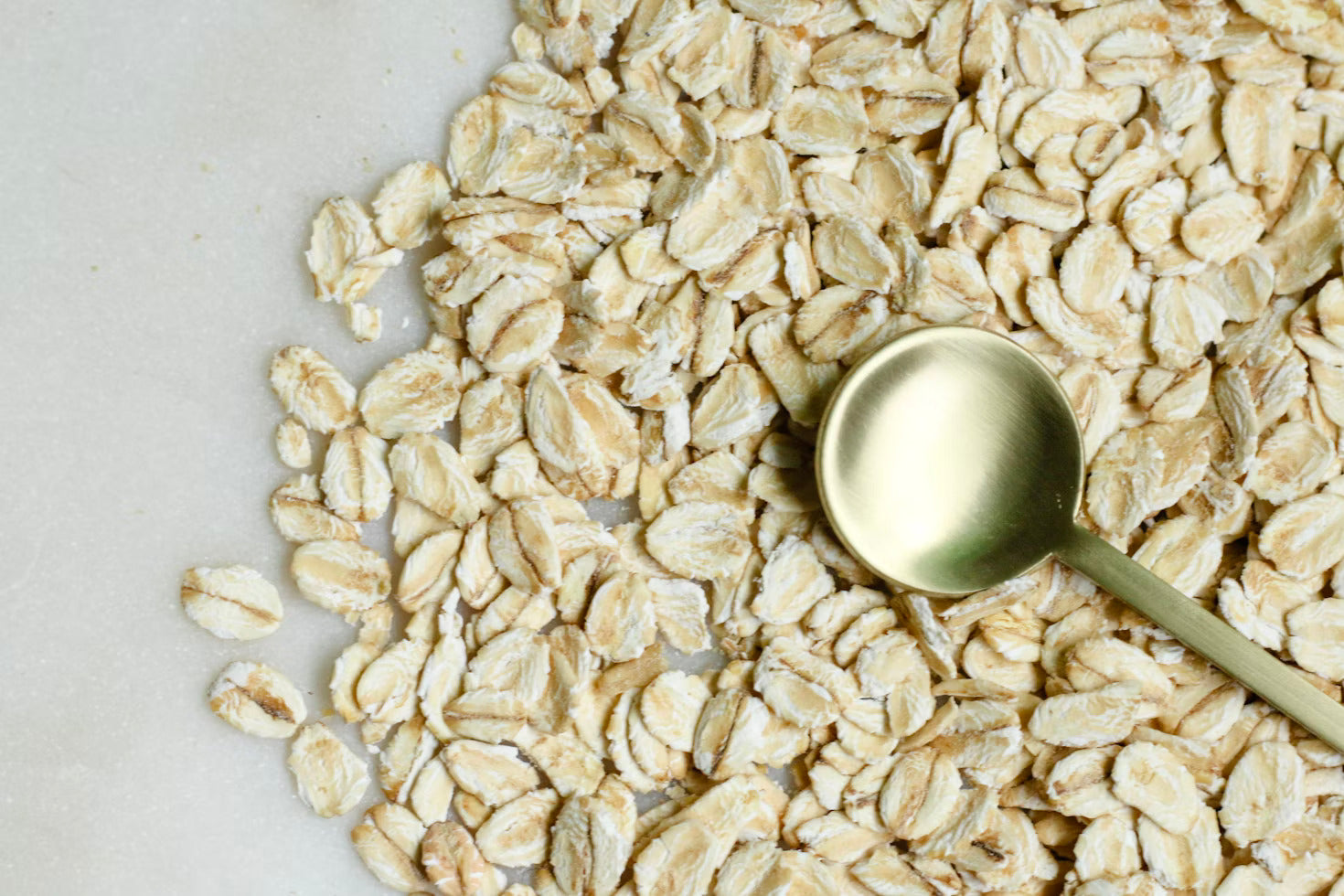
Image from Melissa Di Rocco on Unsplash
Salmon
Packed with omega-3 fatty acids, salmon can reduce inflammation, improve cardiovascular health, and enhance brain function. You can include grilled or baked salmon in your meals to reap its benefits.
Spinach
This leafy green is rich in iron, which helps transport oxygen to your muscles i.e., healthy blood flow. Add spinach to your salads or smoothies for an added nutritional boost.
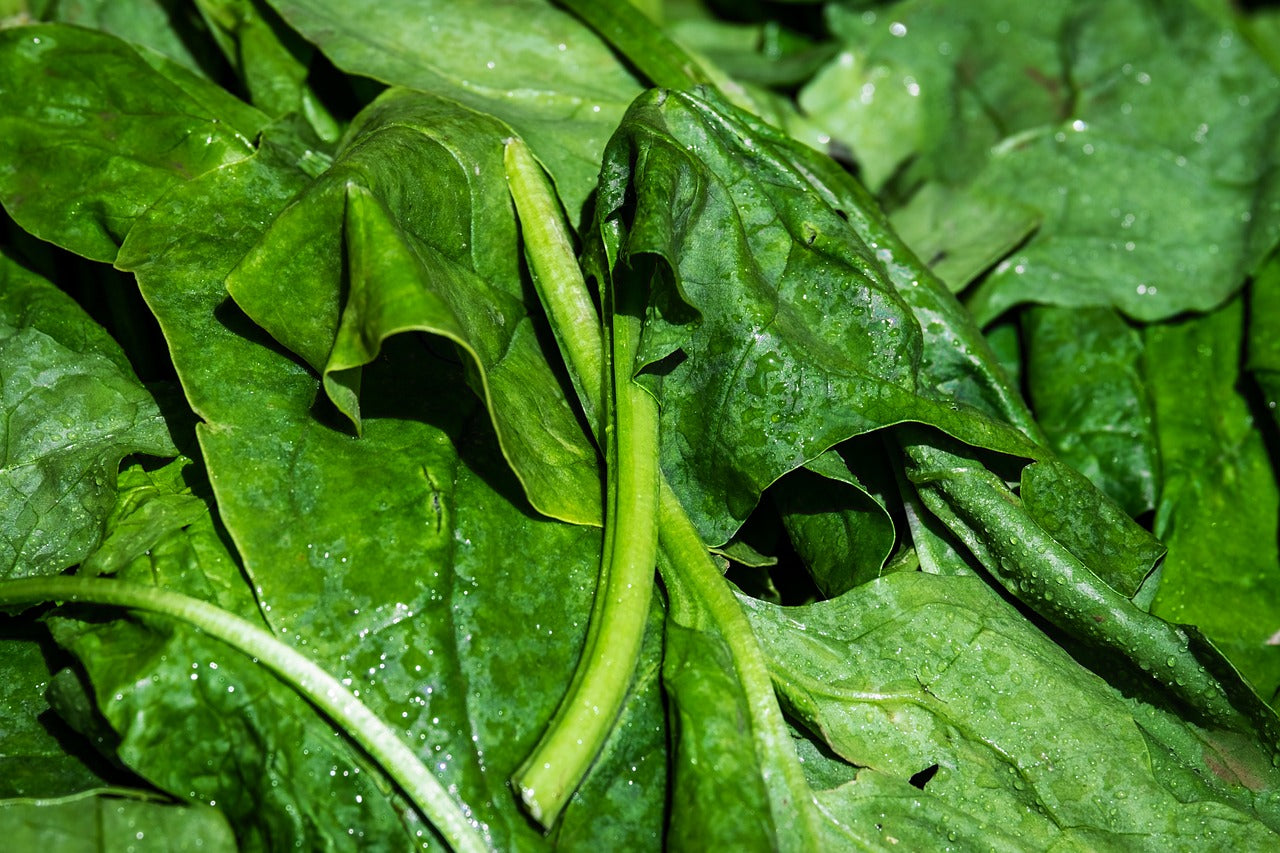
Image from Couleur on Pixabay
Quinoa
A complete protein source that is gluten-free, quinoa is a great option for golfers. It is also high in fiber, providing you with long-lasting energy for the physical demands of golf.
Sweet Potatoes
These nutrient-dense tubers are high in carbohydrates and provide a steady release of energy. Swap regular potatoes for sweet potatoes in your meals to fuel your game.
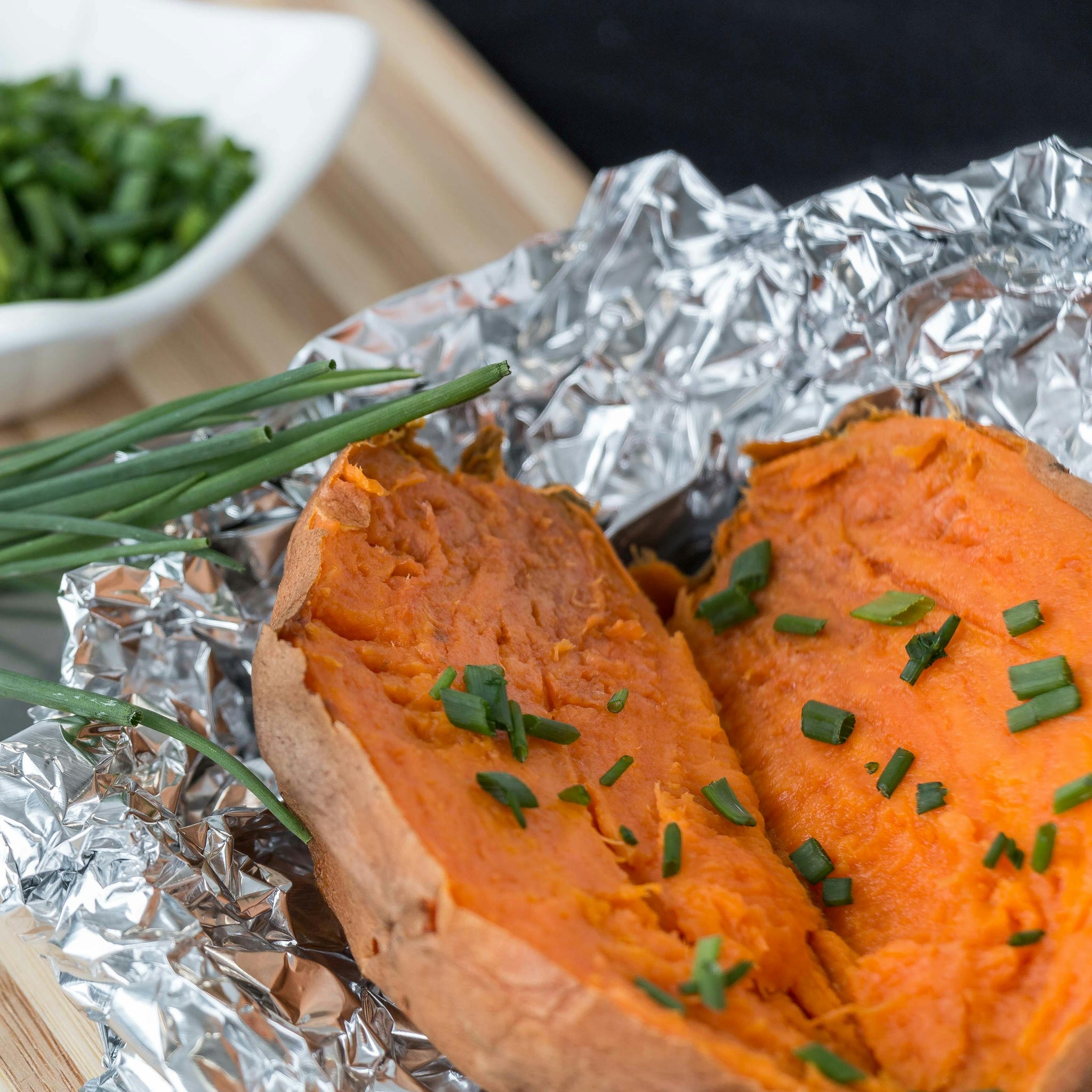
Image from Loren Castillo on Pexels
Berries
Blueberries, strawberries, and raspberries are packed with antioxidants that can improve your focus and protect against age-related oxidative stress. Enjoy them as a snack or add them to your post-round smoothie.
Eggs
A versatile and protein-packed food, eggs provide essential amino acids for muscle repair. Whip up an omelet or enjoy a hard-boiled egg for a quick and nutritious meal.
Greek Yogurt
Rich in protein and calcium, Greek yogurt can support muscle recovery and strengthen your bones. Enjoy it as a post-round snack or add it to your smoothies for a creamy texture.
Almonds
Crunchy, nutty almonds are a great source of healthy fats and provide a satiating snack option straight from your pocket. You could also pack a handful of almonds in your golf bag for a quick energy boost.
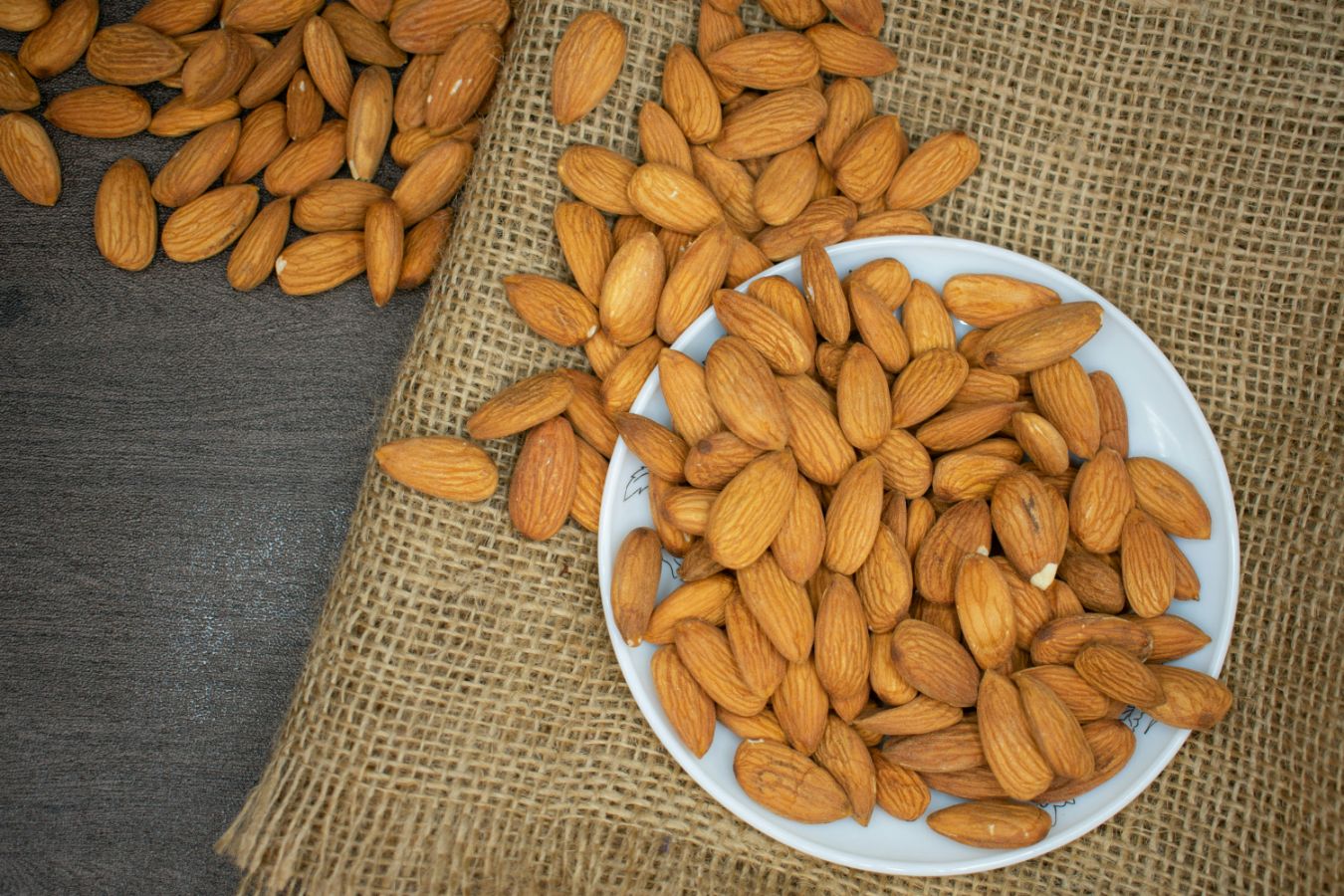
Image from Kafeel Ahmed on Pexels
Watermelon
Staying hydrated is crucial for optimal golf performance. Watermelon not only helps quench your thirst but also provides essential electrolytes that can prevent dehydration on the course.
Food Tip #1
As a baseline, aim to have a balanced meal that includes a portion each of carbohydrates, protein, and healthy fats, about two to three hours before tee time. This will give your body enough time to digest and absorb the nutrients, and be able to churn out sustained energy throughout your game.
However, if you need a snack closer to your game, light and easily digestible foods are better and won’t weigh you down on the course. A piece of fruit, a small handful of nuts, some greek yogurt, or a protein bar are snacks that can provide you a quick energy boost.
Avoid heavy, greasy, and high-fat meals that can leave you feeling sluggish and may lead to indigestion on the course. The same goes for fried foods, fatty meats, and rich desserts eaten before your game.
You might think a can of that energy drink does no harm, but any food or drink high in refined sugars and caffeine can cause a sudden spike and crash in energy levels, leaving you feeling fatigued during your game - steer clear of those.
Simple and Nutritious Recipes for Golfers
Eating healthy doesn't have to be complicated - here are three simple and nutritious recipes, which can be easily packed into a golf tote bag for when you get hungry.
Recipe 1: Grilled Chicken Salad
Ingredients:
- 1 grilled chicken breast
- Mixed greens
- Cherry tomatoes
- Cucumber slices
- Avocado chunks
- Balsamic vinaigrette dressing
Instructions:
- Slice the grilled chicken breast into strips.
- In a large bowl, combine the mixed greens, cherry tomatoes, cucumber slices, and avocado chunks.
- Add the grilled chicken on top.
- Drizzle with balsamic vinaigrette dressing.
- Toss well to combine - bon appétit!
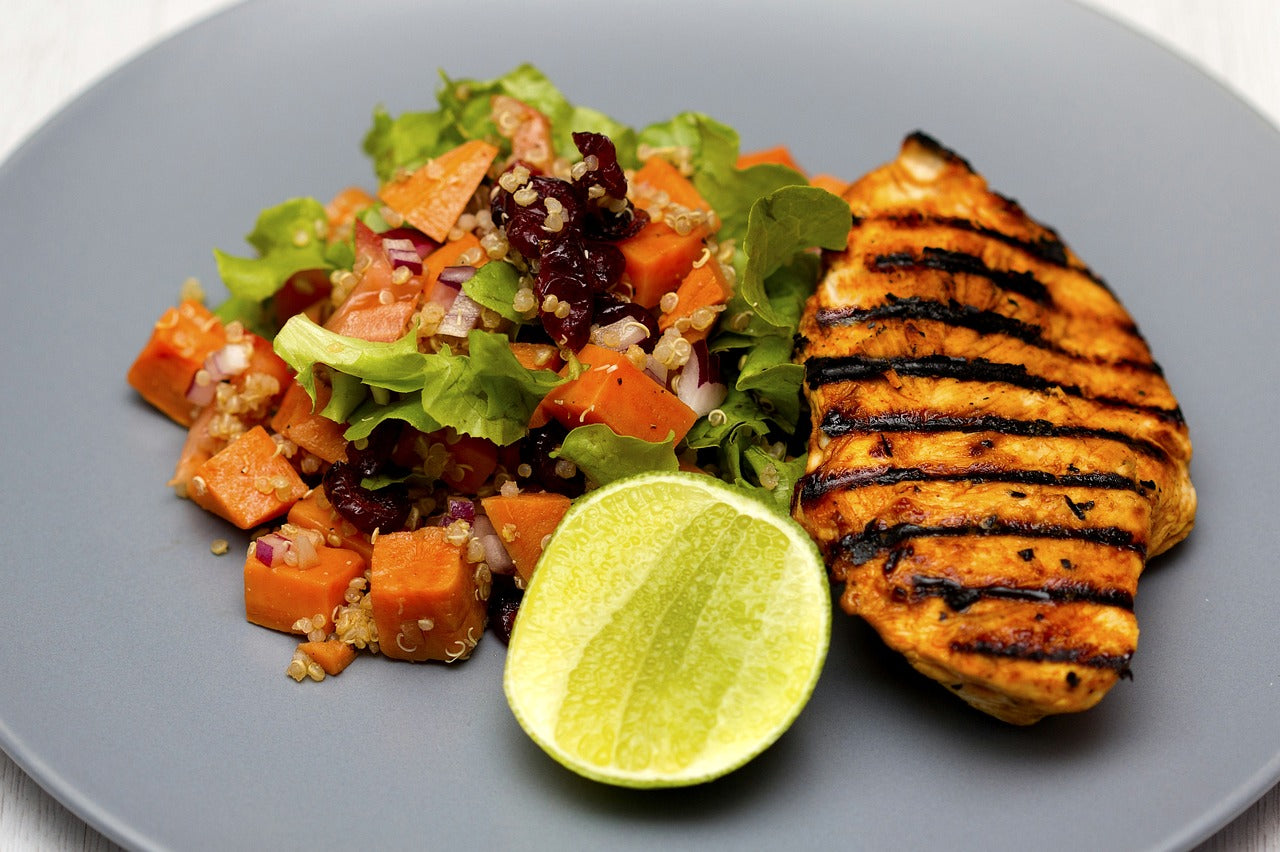
Recipe 2: Salmon and Sweet Potato Foil Pack
Ingredients:
- 1 salmon fillet
- Sweet potato cubes mixed with broccoli or asparagus
- 1 tablespoon olive oil
- Lemon juice, dill, salt, and pepper for seasoning
Instructions:
- Place a salmon fillet on a sheet of aluminum foil.
- Season with lemon juice, dill, salt, and pepper.
- Add mixed vegetables.
- Seal the foil packet and bake in the oven for 20-25 minutes.
- Unwrap and eat while it smells good.
Recipe 3: Quinoa and Vegetable Stir-Fry
Ingredients:
- 1 cup cooked quinoa
- Mixed vegetables (such as bell peppers, broccoli, and carrots)
- 1 tablespoon olive oil
- 2 cloves of garlic, minced
- Soy sauce or tamari sauce for seasoning
Instructions:
- Heat olive oil in a large skillet over medium heat.
- Add minced garlic and sauté for a minute until fragrant.
- Add the mixed vegetables and stir-fry until cooked but still crunchy.
- Add the cooked quinoa to the skillet and stir to combine.
- Season with soy sauce or tamari sauce to taste.
- Serve hot and enjoy!
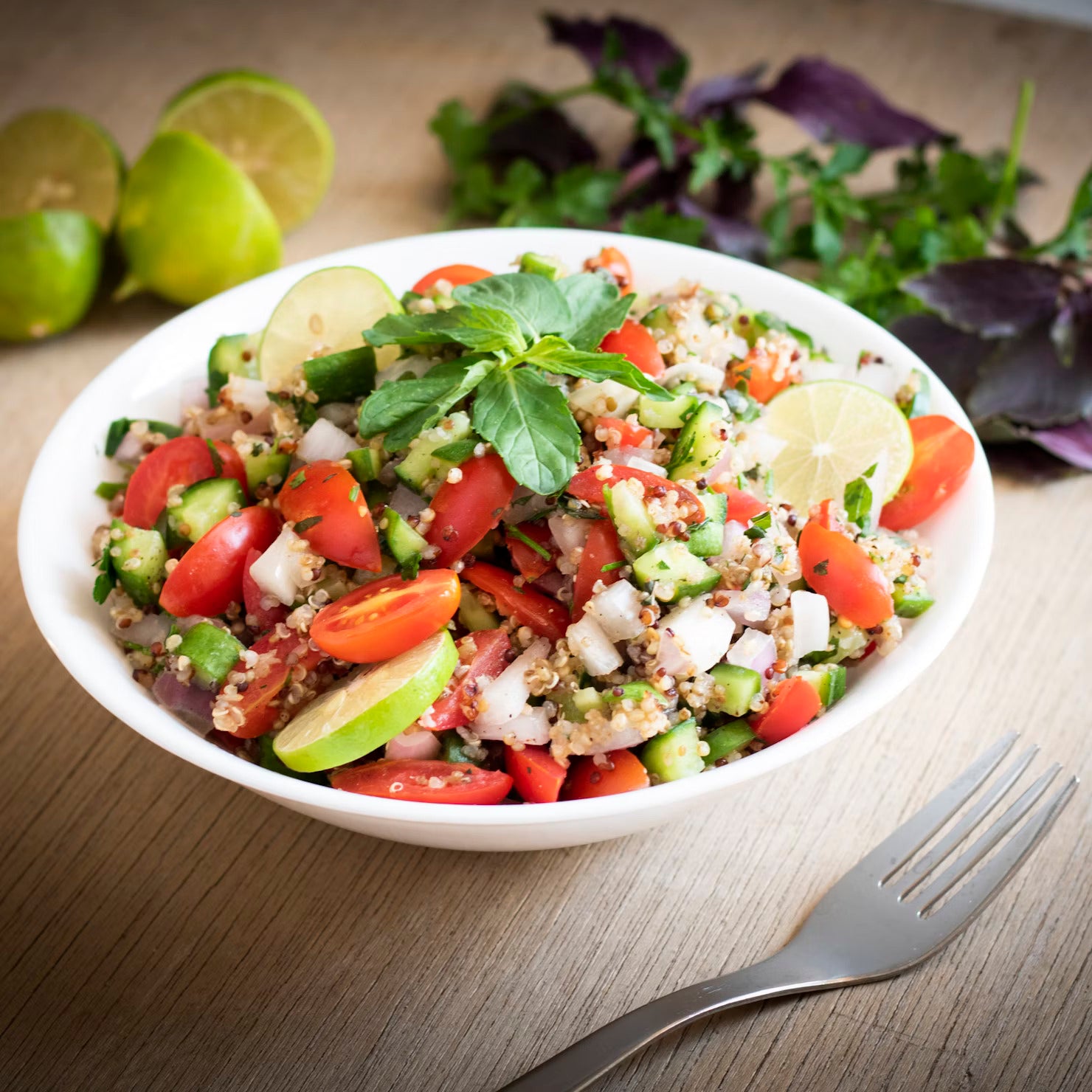
Image from Reza Eghtedari on Unsplash
Food Tip #2
As a golfer, you may find yourself constantly on the move. Meal prepping can be a game-changer, ensuring you have nutritious meals ready to go.
-
Plan your meals: Take some time each week to plan your meals and create a shopping list. This will help you stay organized and avoid the rush for food ingredients at the last minute.
-
Batch cook: Prepare larger portions of meals that can be easily divided into individual containers for multiple servings to save time.
-
Pre-cut fruits and vegetables: Wash, peel, and chop fruits and vegetables in advance, making it easier to include them in your meals or as a quick snack option.
-
Use portable containers: Invest in containers that are easy to carry and can keep your meals fresh while stored away in a bag.
-
Stay hydrated: Fill a reusable water bottle and keep it with you throughout your round. Sip on water regularly to stay hydrated and maintain optimal performance.
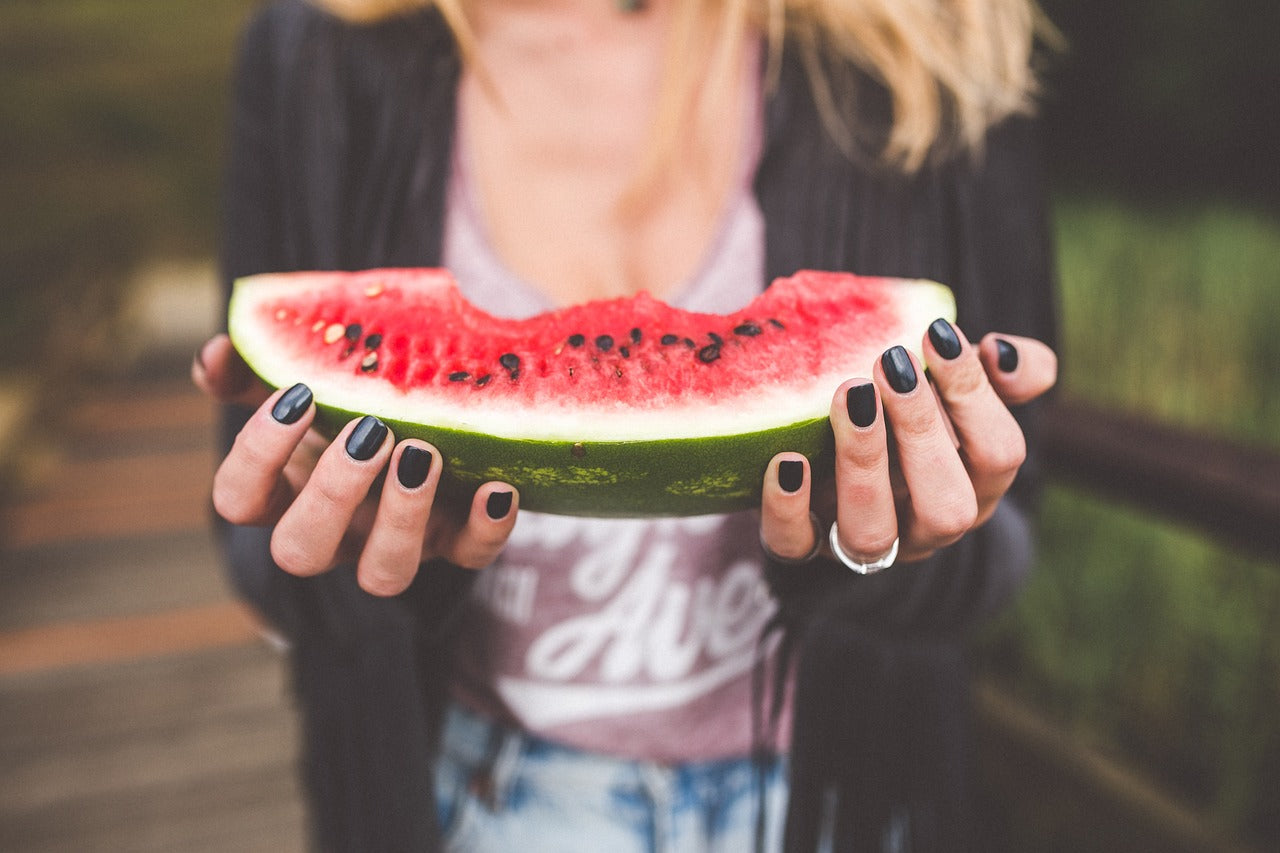
Image from Foundry on Pixabay
Why Fuel Up with the Right Foods?
Nutrition is a powerful tool that can enhance your golf performance. On the flipside, when a golfer doesn't eat nutritious foods meant for golf performance, it can have several negative impacts on their game and overall health. This can range from immediate consequences, such as decreased energy levels and increased risk of injury, to unfortunate long-term health issues.
So, you need to optimize your nutrition. In addition to a nutritious diet and staying hydrated, certain supplements can support your energy levels and physical performance on the golf course:
-
Fish replacement: If you're not a fan of fish, consider taking omega-3 supplements like fish oil, to reap the anti-inflammatory and heart health benefits.
-
Vitamin D: Golfers who spend a lot of time outdoors may benefit from vitamin D supplements for bone health and immune function.
-
Electrolytes: Electrolyte tablets or powders provide vital rehydration during long rounds, and supports muscle function and nerve signaling.
-
B vitamins: B vitamins, such as B6 and B12, play a crucial role in energy production and nerve function, and also supports overall performance. Consider a B complex supplement or foods fortified with B vitamins.
NOTE: Golfers should prioritize a balanced diet and only use supplements to fill in specific nutritional gaps or support performance and recovery as needed.















